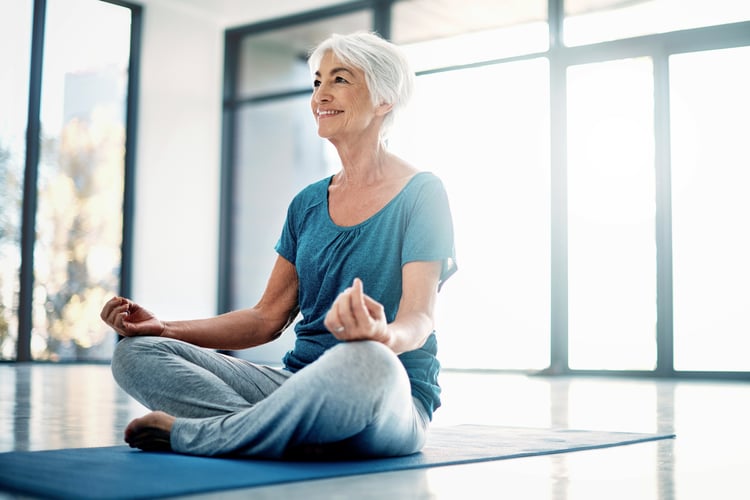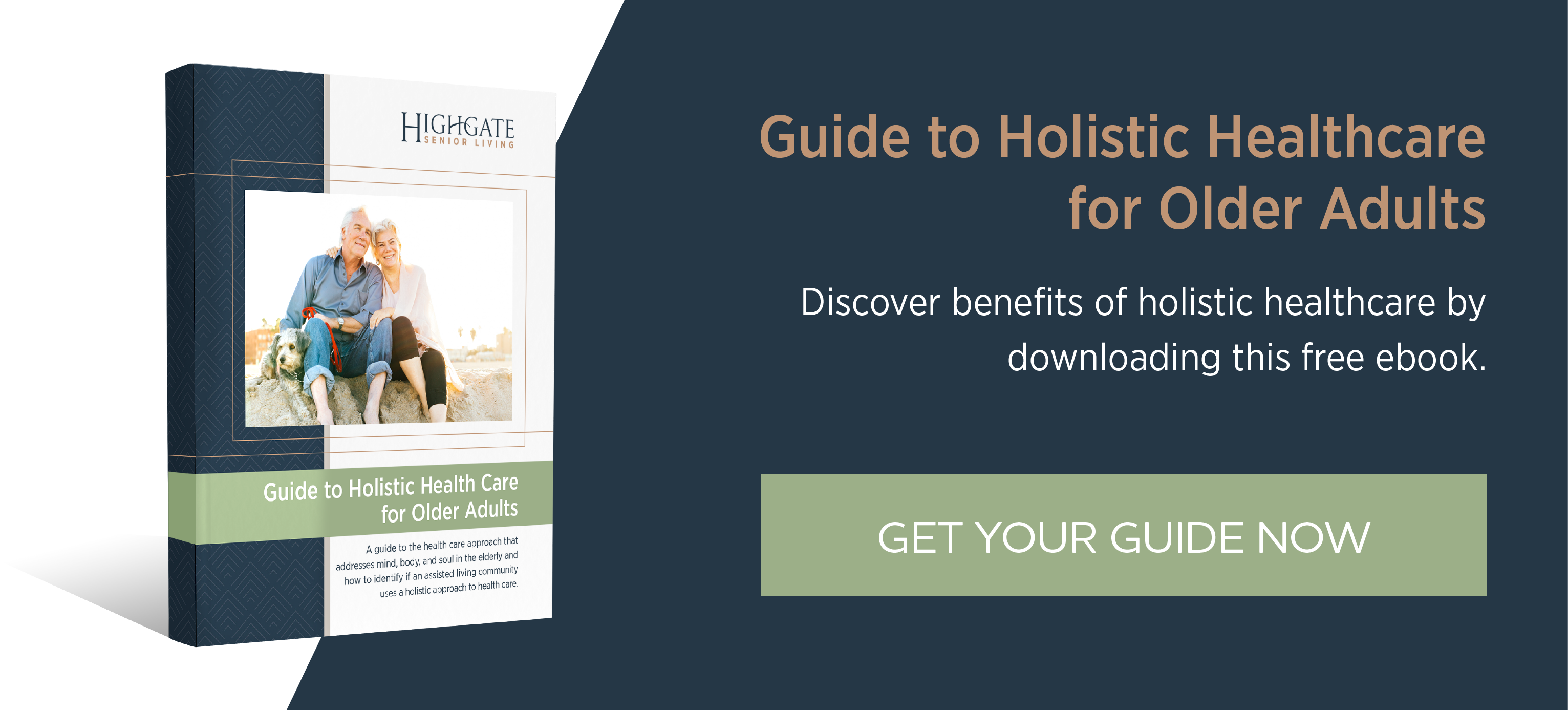
A lot of senior living communities like to use buzzwords and flaunt their modern beliefs. Sometimes they discuss concepts like yoga, meditation, and holistic health care, attempting to appeal to potential residents and their adult children. But they might be hard-pressed to explain what it really means and how they use these methods of care.
At Highgate Senior Living, team members do a lot more than talk. Longtime advocates of holistic health care, all levels of team members use these methods, which can take many forms.
Holistic Health Care Methods
Highgate Senior Living at Prescott Lakes’ Executive Director Dana Donovan says they look for a lot more than just medical intervention to help their residents. “We’ll try anything that will comfort our residents,” she says. “And a lot of family members really like that we don’t go straight to medication.”
Her experience at Highgate in Prescott shows that it has made a difference, with seniors requiring fewer medications and having fewer “behavioral” issues. Most of their frequently used methods are quite simple but have a tremendous impact, especially in their memory care unit.
Aromatherapy Options
“We use essential oils on warm washcloths — with peppermint and citrus — before lunch and dinner with our memory care residents,” Donovan says, adding that they typically use aromatherapy diffusers throughout the community. “Not only do the washcloths promote cleanliness but with the right essential oils, they can also increase appetite.”
As a result, some seniors tend to eat more, which can otherwise be challenging due to cognitive impairments and may help eliminate the need for supplement shakes or drugs.
Similarly, the community uses lavender sprays, which has been shown to have a calming effect. “We might say, ‘Oh, smell this, what do you think?” Donovan says. Donavan’s experience has been that lavender has helped some residents experience diminished anxiety.
Some other popular remedies are a set of four teas the community offers that helps with tranquility, serenity, immunity, and digestion; weighted blankets or iPods and headphones to help ease anxiety.
“All of our care partners carry lavender and sage lotions in their fanny packs,” Donovan says. “If we see someone who is exit-seeking, we might say ‘Can you help me with this really quick? I need to rub some lotion into my hands.’” In the process of massaging the care partners’ hands, the resident gets some of the lavender massaged into their own, and the aroma and pressure on their palms help soothe them. This approach helps positively redirect a resident without having to medicate them.
Not only do these methods help residents who are experiencing a specific symptom or issue, Donovan says, but it also helps the team expand their thinking on how to holistically care for Highgate residents.
“While other communities might think, ‘that’s such an aggressive resident’ at Highgate we recognize they are just trying to communicate a need. We need to be the detectives and figure out what the resident is trying to tell us,” she says. “This philosophy helps train our team, particularly our care partners, to think outside of the box and find solutions to what someone else may consider a “behavior”. Our team knows how to investigate. Are their shoes that uncomfortable? Do they need their nails clipped? Instead of just giving our residents more medication, we stop and remember that they are human beings. Once you decide that these things are going to help, you’re more open to what else can help.”
Holistic health care identifies ways to not only treat an ailment or disease, but also to promote overall health and well-being in residents.






